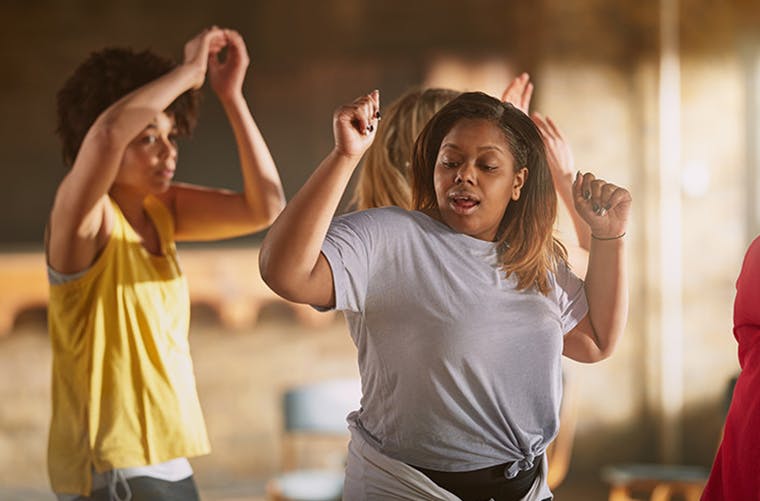Flip That Switch: Ways to Put Negative Thoughts to Pasture

It doesn’t just make you feel good in the moment.
Good news if you’re having a rough day: You can train your brain to think positive thoughts. Before you roll your eyes, consider this: Upbeat feelings are linked to tons of health benefits, like longer life, healthier weight, and reduced risk for heart disease. Ready to feel good? Kick those defeatist feelings to the curb with just a few small attitude tweaks (and a little practice).
ACCUMULATE MICRO-MOMENTS.
Have you ever walked by a rambunctious puppy and broken into a smile? Savoring positive moments can increase feelings of well-being and is linked to lower levels of stress. These mini moments lead to what Barbara Fredrickson, a psychologist at the University of North Carolina who studies positive thinking, calls “micro-utopias” during your day. And these moments add up: Fredrickson says accumulated flashes of positivity—like grinning at a clumsy pup—is linked to improved health and social connectivity.
TAKE TWO MINUTES TO WRITE IT OUT.
Seriously, it’s that easy. One study, published in the British Journal of Health Psychology, had participants spend two minutes a day for two days writing about a positive or traumatic experience, or a control topic. Those who reflected on an emotional experience had fewer health complaints when the researchers followed up four to six weeks later. The next time you’re feeling happy or sad, try spending a couple minutes writing about it. As a bonus, you might find yourself working through any negative feelings even when you’re through scribbling down your thoughts.
PRACTICE LOVING-KINDNESS MEDITATION. You know the saying “love begets love”? Well, apparently it also begets health. Loving-kindness meditation is a type of mindfulness meditation where you start by thinking of someone whom you love, then redirect those warm and fuzzy feelings first to yourself and then to others. In one study, around 200 participants practiced loving-kindness meditation in six one-hour sessions. At the end, they saw an upward shift in positive emotions, self-acceptance, relationships with others, and physical health.
FOSTER STRONG RELATIONSHIPS.
Having close relationships is linked to better health and well-being. While the exact mechanism of the association is unknown, it’s possible that having a supportive network can promote health by fulfilling basic needs for social connection, helping with stress, and encouraging personal growth. If it’s been a while since you spent time with someone you love, there’s no time like the present! And while you’re at it…
SHARE AN ACTIVITY.
Watching a funny TV show or sharing a joke with a friend who appreciates your (excellent) taste can result in what Fredrickson, the UNC psychologist, calls “positivity resonance”—the idea that when two people share a positive emotion, they experience a connection. According to Fredrickson, the bonds that are built from moments like this can promote health. For positivity resonance to occur, however, you have to be physically with the person. Texting your best friend a funny video may feel good, but don’t expect the same result.
Find other great health and wellness stories at BHG.com/Strive.
© Meredith Corporation. All rights reserved.







































